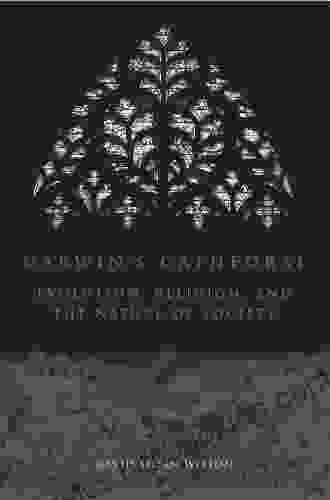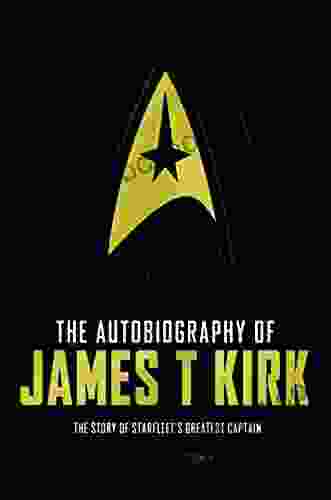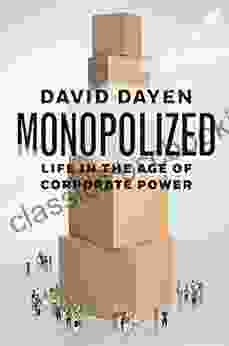Evolution, Religion, and the Nature of Society: Unraveling the Interplay between Science, Faith, and Social Structures

The relationship between evolution, religion, and society is a complex and multifaceted one that has been the subject of ongoing debate for centuries. On the one hand, scientific advancements in evolutionary theory have deepened our understanding of the origins and development of life on Earth. On the other hand, religious beliefs and practices continue to shape the values, norms, and social structures of societies around the world.
This article delves into the intricate interplay between evolution, religion, and the nature of society. We explore the historical and contemporary perspectives on this topic, examining the points of convergence and conflict between these different worldviews. Furthermore, we discuss the implications of this relationship for understanding the evolution of human consciousness, the development of moral systems, and the future of human society.
Historical Perspectives
4.4 out of 5
| Language | : | English |
| File size | : | 5974 KB |
| Text-to-Speech | : | Enabled |
| Screen Reader | : | Supported |
| Enhanced typesetting | : | Enabled |
| Word Wise | : | Enabled |
| Print length | : | 278 pages |
| Lending | : | Enabled |
Throughout history, different cultures and civilizations have developed their own unique ways of reconciling the concepts of evolution and religion. In ancient Greece, philosophers such as Anaximander and Empedocles proposed theories of natural selection and adaptation that foreshadowed Darwin's work. However, these ideas were often intertwined with mythological and religious beliefs, such as the notion of divine creation.
During the Middle Ages, the dominant paradigm in Europe was the Christian worldview, which held that the Earth and all its inhabitants were created by God in a single act of creation. This view was largely incompatible with the idea of evolution, which implied that species changed over time through natural processes. Consequently, scientific theories that challenged the biblical account of creation were often met with resistance and persecution.
The Enlightenment and the Rise of Modern Science
The Enlightenment period of the 17th and 18th centuries marked a significant shift in the relationship between science and religion. The rise of scientific rationalism and empiricism led to a questioning of traditional religious beliefs and the emergence of a more secular worldview. Scientists such as Galileo, Newton, and Linnaeus made groundbreaking discoveries that provided strong evidence for the principles of evolution.
In the 19th century, Charles Darwin's theory of natural selection revolutionized our understanding of the history of life. Darwin's work demonstrated that species change over time through the process of variation, selection, and inheritance. This theory challenged the prevailing notion of a static and divinely created world, and it sparked intense debate about the implications for religious beliefs.
Contemporary Perspectives
Today, the relationship between evolution, religion, and society remains a subject of ongoing discussion. There is a wide range of perspectives on this topic, from those who see evolution and religion as fundamentally incompatible to those who believe that they can be reconciled in a meaningful way.
Some religious denominations have embraced evolutionary theory and interpreted it as a manifestation of God's creative activity. Others have rejected evolution altogether, arguing that it is incompatible with their sacred texts or core beliefs. Still others have developed hybrid views that attempt to incorporate evolutionary principles into a religious framework.
The Implications for Social Structures
The relationship between evolution, religion, and society has significant implications for understanding the development of human social structures. Evolutionary theory suggests that humans are a social species that evolved cooperative behaviors and complex social organizations over time. This process has been shaped by both biological and cultural factors, including religious beliefs and practices.
Religion has played a key role in the development of social norms, values, and institutions. Religious beliefs can provide a shared moral framework that guides individual behavior and promotes social cohesion. However, religion can also be a source of conflict and division, particularly when different religious groups compete for resources or power.
The Evolution of Human Consciousness
Evolutionary theory provides a framework for understanding the evolution of human consciousness and cognition. As humans evolved larger brains and more complex cognitive abilities, they developed a capacity for abstract thought, self-awareness, and empathy. This process was influenced by both biological and environmental factors, including cultural and religious practices.
Religion has been a significant force in shaping human consciousness and the development of moral systems. Religious beliefs and practices can influence individual perceptions of reality, values, and ethical behavior. The study of the relationship between evolution, religion, and the evolution of consciousness is a relatively new field of research, but it has the potential to shed light on some of the most fundamental questions about human nature.
The Future of Human Society
The relationship between evolution, religion, and society is likely to continue to be a subject of debate and discussion in the future. As our understanding of evolution and religion evolves, so too will our perspectives on the nature of society and its development.
Some scholars believe that the increasing secularization of society will lead to a decline in the influence of religion on social structures and values. Others argue that religion will continue to play a significant role in shaping human society, even in the face of scientific advancements.
The future of the relationship between evolution, religion, and society is uncertain, but it is clear that these three forces will continue to interact and influence each other in complex and dynamic ways. By understanding the interplay between these different worldviews, we can gain a deeper appreciation for the diversity of human experience and the challenges and opportunities that lie ahead.
The relationship between evolution, religion, and the nature of society is a complex and multifaceted one that has been the subject of ongoing debate for centuries. Throughout history, different cultures and civilizations have developed their own unique ways of reconciling these different worldviews.
In the modern world, the relationship between evolution and religion continues to be a topic of discussion and debate. Some religious denominations have embraced evolutionary theory, while others have rejected it altogether. Still others have developed hybrid views that attempt to incorporate evolutionary principles into a religious framework.
The relationship between evolution, religion, and the nature of society has significant implications for understanding the development of human social structures, the evolution of human consciousness, and the future of human society. By understanding the interplay between these different worldviews, we can gain a deeper appreciation for the diversity of human experience and the challenges and opportunities that lie ahead.
4.4 out of 5
| Language | : | English |
| File size | : | 5974 KB |
| Text-to-Speech | : | Enabled |
| Screen Reader | : | Supported |
| Enhanced typesetting | : | Enabled |
| Word Wise | : | Enabled |
| Print length | : | 278 pages |
| Lending | : | Enabled |
Do you want to contribute by writing guest posts on this blog?
Please contact us and send us a resume of previous articles that you have written.
 Book
Book Novel
Novel Page
Page Chapter
Chapter Text
Text Story
Story Genre
Genre Reader
Reader Library
Library Paperback
Paperback E-book
E-book Magazine
Magazine Newspaper
Newspaper Paragraph
Paragraph Sentence
Sentence Bookmark
Bookmark Shelf
Shelf Glossary
Glossary Bibliography
Bibliography Foreword
Foreword Preface
Preface Synopsis
Synopsis Annotation
Annotation Footnote
Footnote Manuscript
Manuscript Scroll
Scroll Codex
Codex Tome
Tome Bestseller
Bestseller Classics
Classics Library card
Library card Narrative
Narrative Biography
Biography Autobiography
Autobiography Memoir
Memoir Reference
Reference Encyclopedia
Encyclopedia Darron Cardosa
Darron Cardosa David Garner
David Garner David Gaughran
David Gaughran Dave Edwards
Dave Edwards David Easley
David Easley David Bowles
David Bowles David Scott Peters
David Scott Peters Danielle Geller
Danielle Geller David Sowell
David Sowell Dean Littlepage
Dean Littlepage Daniel Van
Daniel Van David Treuer
David Treuer David Cousens
David Cousens De Andrea
De Andrea David A Mcintee
David A Mcintee Danielle Gomez
Danielle Gomez David Baer
David Baer David Cannadine
David Cannadine David S Evans
David S Evans David Sherwin
David Sherwin
Light bulbAdvertise smarter! Our strategic ad space ensures maximum exposure. Reserve your spot today!

 Emmett Mitchell50 Fun Recipes Kids Will Love To Bake: A Culinary Adventure for Young Chefs
Emmett Mitchell50 Fun Recipes Kids Will Love To Bake: A Culinary Adventure for Young Chefs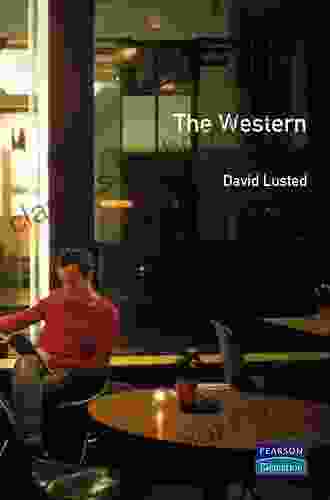
 Evan HayesUnveiling the Untold Stories: A Journey into the Western Inside Film by David...
Evan HayesUnveiling the Untold Stories: A Journey into the Western Inside Film by David... Adrian WardFollow ·11.5k
Adrian WardFollow ·11.5k Junichiro TanizakiFollow ·17.3k
Junichiro TanizakiFollow ·17.3k Cortez ReedFollow ·14.1k
Cortez ReedFollow ·14.1k Arthur C. ClarkeFollow ·7.8k
Arthur C. ClarkeFollow ·7.8k Don ColemanFollow ·2.3k
Don ColemanFollow ·2.3k Troy SimmonsFollow ·4.4k
Troy SimmonsFollow ·4.4k Aldous HuxleyFollow ·10.2k
Aldous HuxleyFollow ·10.2k John MiltonFollow ·11.5k
John MiltonFollow ·11.5k
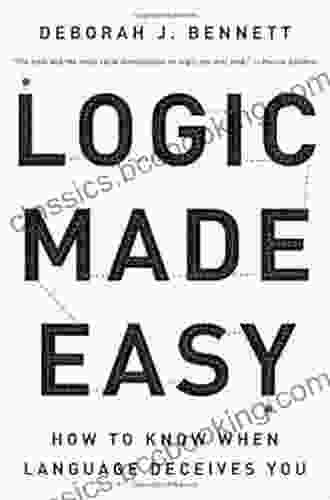
 Cameron Reed
Cameron ReedHow to Know When Language Deceives You
Unmasking the Power of...

 Robbie Carter
Robbie Carter50 Things To Know About Planning Home Schooling...
: The Power of Hands-On Learning Embarking...
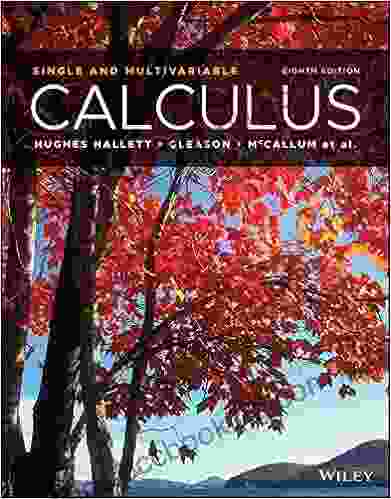
 Julio Cortázar
Julio CortázarCalculus: Single and Multivariable, 8th Edition — The...
Calculus is the...

 Jaime Mitchell
Jaime MitchellBunnicula and Friends: A Spooktacular Tale of Mystery and...
In the quaint little town of Celeryville,...

 Josh Carter
Josh CarterPeppa Easter Egg Hunt: Join Peppa Pig on an...
Get ready for...
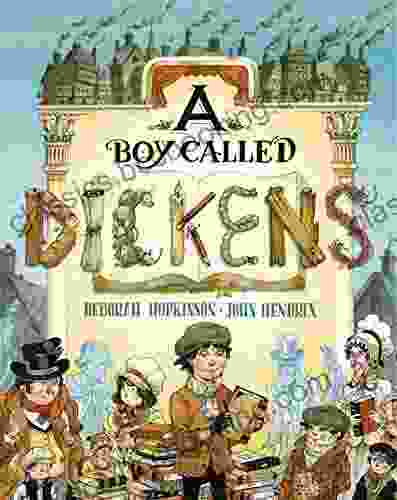
 Donovan Carter
Donovan CarterBoy Called Dickens: A Journey into the Childhood of a...
Delving into the...
4.4 out of 5
| Language | : | English |
| File size | : | 5974 KB |
| Text-to-Speech | : | Enabled |
| Screen Reader | : | Supported |
| Enhanced typesetting | : | Enabled |
| Word Wise | : | Enabled |
| Print length | : | 278 pages |
| Lending | : | Enabled |


